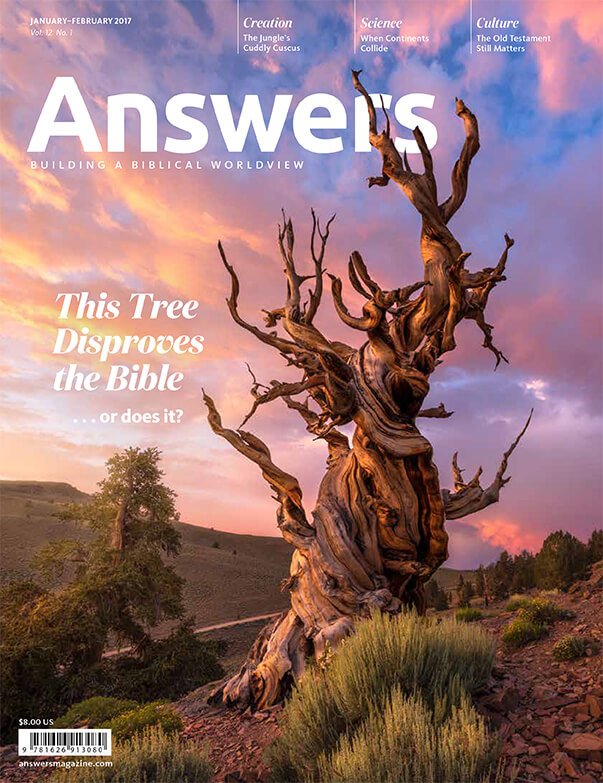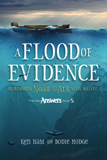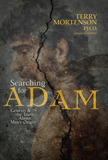Targeted Apologetics
What do young people believe are the best evidences of evolution? A behavioral scientist sought the answer so we could target our training.
With so many young people leaving the church, it would be nice to get inside their heads to see what’s going on. If Christian parents and church leaders could understand their concerns, they might be able to focus their teaching in a better way to address their deepest struggles.
Young people give many reasons for their exodus—boring services, hypocrisy, irrelevance to daily life, and so on. A research group decided to dig a little deeper, however, and found that other issues often open the door to their rejection of the faith. This survey, published in Already Gone (2009), found that doubts surfaced before high school among 44% of former churchgoers who no longer believe the Bible.
When asked to explain why they doubt the Bible, young people offered answers like “it contradicts itself,” “science shows the earth is old,” and “evolution shows the Bible can’t be trusted.” In a culture permeated by evolution, it’s not surprising to see this worldview assailing young people’s faith. After all, the Bible teaches that “the world” (the world’s way of thinking) has always been opposed to God (1 John 2:16).
As a professional behavioral scientist, I wanted to do further research to get at the root of these young people’s doubts, especially about the Creator. Why would they reject creation in six 24-hour days, and embrace evolution over billions of years? I believe hard data can help us target our efforts to help young people.
The Study
In the summer of 2016 my ministry surveyed a broad cross-section of nearly 300 young people, ages 14 to 24, asking an open-ended question: “Regardless of whether you believe in evolution, what is the best evidence that evolution is true?” The answers were varied, but we were able to sort them into ten categories. Interestingly, we found that just four categories make up 72% of the reasons for belief in evolution.
These are the arguments pertaining to human evolution (25%), Darwin’s theory proper (mutations, natural selection, etc.) (21%), fossils and so-called transitions (15%), and the apparent consensus of scientists and science regarding the theory of evolution (11%). Amazingly, evolution is supported by a shaky four-legged stool: human evolution, Darwin’s theory, fossils/transitions, and the idea that scientists support evolution.
I believe we need a well-rounded strategy for reaching young people. They need to see how, when we start with the Bible, scientific data confirms the Bible in each area of science, but it does not confirm evolutionary ideas. Interestingly, Christians and non-Christians did not give significantly different answers in the survey. The frequencies of the “best evolution evidences” were very similar for both.
Getting to the Heart of the Matter
Learning how to address every single perceived evidence for evolution is intimidating (if not impossible). Identifying the topics that most concern young people helps, but it’s still a challenge. The science and interpretations of biology are complex and ever-changing. How can we effectively equip young people if the target keeps changing?
The answer is that the details may change, but the big picture does not. The Bible says the Creator has already made Himself “clearly seen” to people, but they suppress this visible truth because they don’t want to follow Him (Romans 1:18–20).
Instead of focusing on the particulars of an evolutionary argument (which may change), we need to help young people see how it’s not the “evidence” that convinces scientists on each point. They need to understand that both sides are looking at the same facts—the same fossils, biological processes, stars, rocks, etc. All these exist in the present and don’t tell us how they got here.
The problem is not so much the things we observe, but our starting point for interpreting unique events in history, which no one can observe in the present. We can start with either man’s fallible ideas or God’s infallible record. And it turns out that the Bible is necessary to get to the correct answers about our origins—that’s what young people need to understand.
You should learn how to do this for every major “best evidence” that concerns typical young people. Take human evolution, for example. Young people often cite things like “similarities between humans and apes” as evidence for evolution. But outward similarity doesn’t prove a common source, any more than the similarity of a Ford to a Chevrolet means it came from the same factory.
We need to show young people that, if you start with the Bible, you can only conclude that God made humans separately from animals.
We need to show young people that, if you start with the Bible, you can only conclude that God made humans separately from animals. Any similarities simply reveal a common Designer, who left His fingerprint in creation. If you start with man’s fallible ideas—that everything arose by slow natural processes over millions of years, only then will you conclude they had a common ancestor.
The key to reaching young people, I believe, is to emphasize how starting points influence every conclusion about the “evidence.” Starting with the Bible leads to reasonable explanations of the data. That’s what we would expect from a book inspired by the holy and true God.
Paul summarizes this point well in his letter to the intellectual Greeks at Corinth: “For the weapons of our warfare are not carnal but mighty in God for pulling down strongholds, casting down arguments and every high thing that exalts itself against the knowledge of God, bringing every thought into captivity to the obedience of Christ” (2 Corinthians 10:4–5).
Paul explains that strongholds, arguments, and high things exalt themselves against the knowledge of God. The Greek word translated arguments means “imagination, reckoning, computation, or reasoning.” Our secular media and education system promote a way of reasoning that starts by vigorously opposing the knowledge of God.
The good news, Paul says, is that God gave us the spiritual weapons necessary for overcoming (pulling down) these strongholds and high things. We need to point out the importance of starting points (aka personal bias) in interpreting the facts around us, especially when it comes to the history of life on earth.
We need to emphasize to young people the fact that God is honest and good, and the beginning of all knowledge (Proverbs 2:5–6). He witnessed what happened in the past, and He tells us in Genesis 1 that He made the universe out of nothing. Later He sent a global Flood to judge mankind’s sin. Since these unique events will never be repeated, scientists can’t observe or test them today. We need God’s Word, the Bible, to know about these past events. Human reasoning without God’s Word can’t uncover such nonrepeatable events.
Notice that Paul opened his debate with the Epicurean and Stoic philosophers in Athens by unapologetically asserting the certainty of creation (Acts 17:16–34). He integrated truths from Genesis into his evangelical outreach: there is a “God who made the world” who “gives to all life [and] breath” and “made from one blood every nation of men to dwell on all the face of the earth.”
As we examine and refute each “evidence for evolution” with young people, we need to show them how starting with the truths of God’s Word is essential if we ever hope to make sense of the things we see around us. The “high thing” of evolution over millions of years crumbles in the light of God’s Word. The two views—believing God and believing in evolution—are irreconcilable.
The choice they will need to make, as all people must, is whether to trust God, who gives us so many compelling reasons to do so.
By the Numbers

In a recent survey, Christian young people were asked what they believe are the best evidences for evolution. Nearly three-fourths of their answers fall into four categories. Any good training program should pay special attention to these specific concerns.
Answers Magazine
January–February 2017
Secular scientists claim it’s easy to disprove the Bible’s 6,000-year history: just count the tree rings. But this dating method is not as reliable as you might think.
Browse Issue SubscribeRecommended Resources

Answers in Genesis is an apologetics ministry, dedicated to helping Christians defend their faith and proclaim the good news of Jesus Christ.
- Customer Service 800.778.3390
- © 2024 Answers in Genesis






